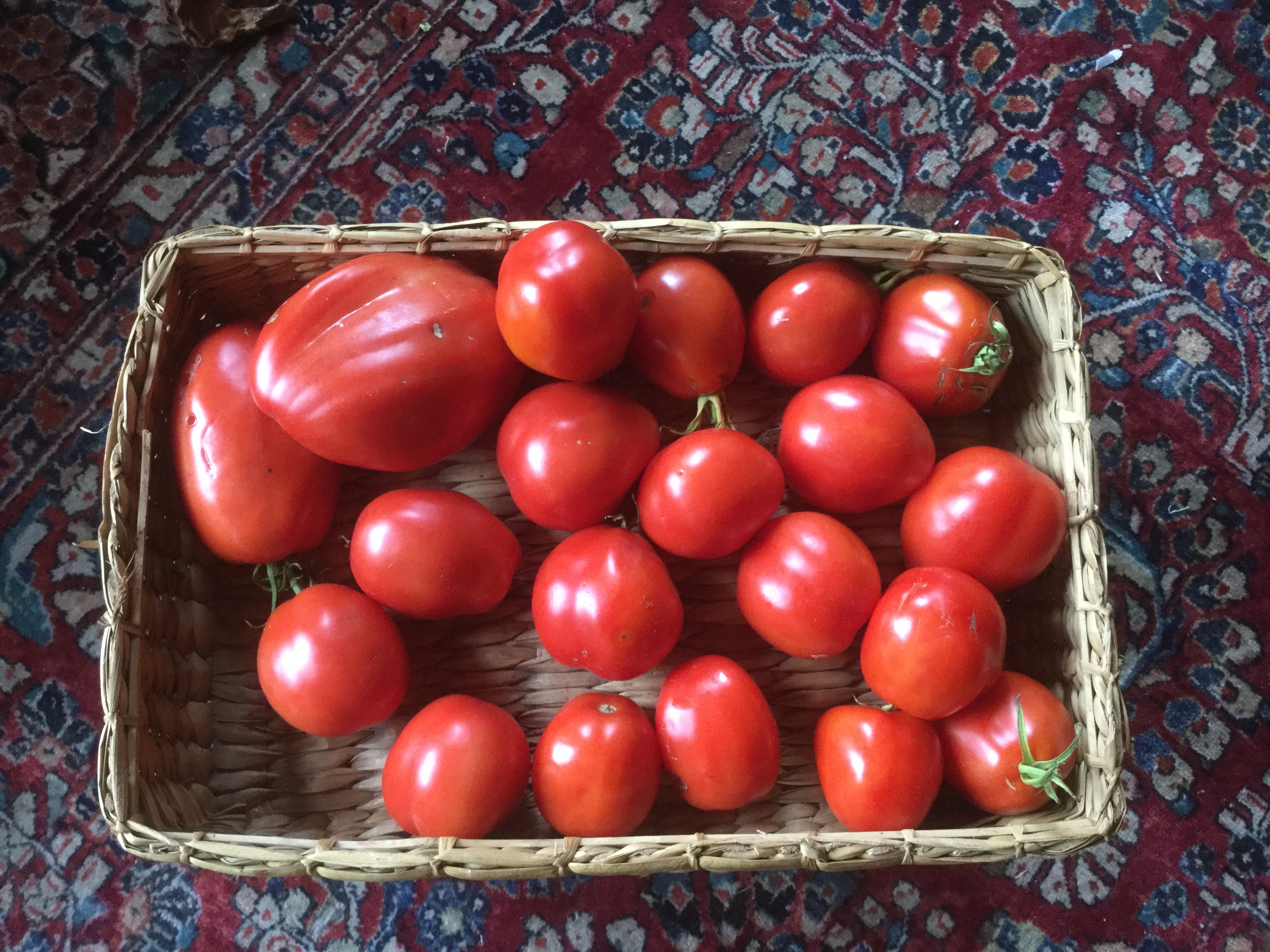Survival instincts are part of your common sense of touch. Every baby is born with an instinct to be comfortably warm, dry and well fed. That instinct stays with us through life. The shorter days of late summer alerts your body that colder weather is on its way. Survival instincts urge you to get ready.
Most people have a lot to do this time of year. This is harvest time. Preparing to be inside for the winter takes a good plan, time management and stamina to get it all done before it gets cold. The goal is to have a comfortable lifestyle in place for the indoor months of the year.
Your body insists on three things to survive the winter months. Heat, food and water. Water is easy for most of us to find. I list it as a necessity because many people don’t drink enough water during cooler months. The best way to have stamina during this busy time of year is to drink a lot of water. Dehydration makes you tired.
If you heat with wood, finishing the woodpile is a priority. If you don’t, getting your winter clothing ready is just as important. Preparing your winter food supply means stocking your pantry and cupboards. If you grow your own food, keeping up with the summer harvest is a priority. If you don’t do preserves, now is the time to stock your cupboards with dry goods you will need for winter foods like baking, soups and stews.
Now is a perfect time to air out or clean all of your winter blankets, quilts, pillows, coats, gloves, hats and clothes that have been stored since last year. If you have a clothesline, leave bedding and heavy winter clothes out overnight during the first cold nights. Cold night air is an excellent air freshener.
This is the perfect time to go through your living space and clear the clutter of summer first. Then, go room to room and sort out what you don’t want anymore. Don’t consider how much you have to do in the whole house. Just concentrate on one room at a time until it’s done. Do at least one room a day then stop.
Get rid of anything in your dresser and closet that you didn’t wear last winter. Chances are pretty good that you won’t wear them this year either. Give away everything you don’t want anymore. If it’s too old to wear, cut it into cleaning rags. If it has sentimental value, put it in a trunk…just get it out of your closet.
Go through all of your food cupboards and fridge check expiration dates. Get rid of everything that is either expired or you just don’t want to eat anymore. This is the perfect time to fill your pantry, cupboards and fridge with healthier choices. If it’s not in the house, you aren’t tempted by it. Donate all unopened, healthy food to those that need it. After you’ve weeded out your food supply, replenish your winter stocks with wise choices.
This room at a time sorting feels wonderful to finish. A sense of accomplishment and readiness calms your mind. Your body feels safely prepared. You can enjoy the rest of the season without being distracted by the nagging feeling that there is something else you should be doing.
The trick to getting everything done is to pace yourself. You need stamina and focus, not caffeine or sugar. Late summer can still get hot during the day. Use all the cooling techniques you used during the summer. Power nap if you’re tired. Still drink lots of water. Lemon in your water is a good choice if you’ve been sweating.
Eat berries and fruit instead of sugar. Sugar makes you feel hotter.Take advantage of the fresh garden produce. The only change in your diet should be on cooler days or nights. Begin adding more proteins, warm foods and oils to your diet. Your body will begin craving calories once it gets cold. Choose wisely.
Symptoms that you are overheating are: Anxiety, restlessness, insomnia, talking too much or faster than normal, nervous laughter, more sweat than normal, flushed face, irregular or rapid heartbeat, painful urination, strong but erratic pulse, mouth sores, tongue sores, blistered lips, dry painful eczema, headache, feeling hot when it really isn’t
Cool your built for speed body with calming foods, and a lot of water. Avoid extra stimulation like caffeine, sugar or alcohol. Your body doesn’t need it in the summer, nobody does.Imagine being at the beach on a very hot day. Instinct tells you to drink something cold every now and then to cool off. Nobody instinctively drinks hot coffee while sitting in the sun. Your body instinctively wisely knows not to get any hotter.
Choosing what to eat or drink when really busy, or on chemo, is also instinctive. A heavy meal like beef stew and biscuits is not a typical choice. Your body wants lighter, more watery food that’s easy to digest. Lighter food means you have to eat more often during the day.
Eat and drink something every two hours. If it’s mealtime, make it a light one. Then snack on something watery like a piece fruit. Then another light meal. Then another wise snack…and so on…all day. Nothing to eat or drink for two hours before you go to bed will help you sleep better.
A tall glass of water every two hours will keep you hydrated and cooler. Caffeine robs your body of water. For every caffeinated drink, you need to replace that same amount with a beverage that is not caffeinated.
Cooling foods include: Apples, applesauce, fresh apricots, asparagus, avocados, bananas, fresh basil, beans, beet greens, sweet berries, cooked broccoli, brussel sprouts, cooked carrots, cashews, cooked cauliflower, chard, mango chutney, cilantro, coconut oil, fresh corn, cucumber, dandelion greens, dill, dulse, egg white, mild flavored fish, flaxseed, fruit juice, ghee, grapes, grape leaf, leafy greens, ice cream, icy drinks, aloe vera juice, apple juice, kale, lemon, lemonade with honey or maple syrup, lentils, lettuce, fresh mango, maple syrup, melons, almond milk, goat milk, rice milk, soy milk, mushrooms
Oats, olive oil, black olives, cooked onions, fresh parsley, parsnip, pear, ripe sweet peppers, fresh plum, pomegranate, rhubarb, saffron, soybeans (edamame), spearmint, sprouts, spaghetti squash summer squash, black or green tea, iced tea, fresh tomatoes, watercress, watermelon, wintergreen, zucchini
Warming foods to avoid, or use in balanced moderation if any symptoms are present: Beef, sour berries, Brazil nuts, yeasted bread, buckwheat, burdock root, buttermilk, caffeine, carbonated beverages, cayenne, hard to bend cheeses, sour cherries, dark meat chicken, chili peppers, green chilies, chocolate, spicy mango chutney, cloves, coffee, corn oil, dried corn, cranberries, daikon radish, duck, filberts, oily fish, white flour (unless made from an ancient grain), garlic, dried ginger, grapefruit, ham, hazelnut, horseradish, sour berry juice, carrot juice, sour cherry juice, grapefruit juice, V-8 juice, ketchup, lamb, macadamia nuts, mace, marjoram, mayonnaise, chocolate milk, miso, molasses, mustard
Green olives, raw onions, oregano, paprika, peach, peanuts, pecans, hot peppers, pickles, pine nuts, pistachios, poppy seed, pork, quinoa, radish, rosemary, rye, safflower oil, sage, salt, raw scallions, sesame oil, sesame seed, sour cream, soy sauce, star anise, white sugar, tahini, thyme, dried tomatoes, cooked tomatoes, tomato sauce, tuna, dark meat turkey, turnip, turnip greens, vinegar, walnuts, yogurt.
When eating any warming food on a hot day, please make sure to surround it with cooling foods. That neutralizes the effect. If you are having burnout symptoms, or going through chemo, please avoid warming foods whenever possible.
When playing hard on a hot day, please make sure to stop and cool down before you have to. If your mouth is dry, you are dehydrating. If you are sweating a lot, drink water with lemon in it to replace the electrolytes.
If you begin feeling dizzy, hear begins pounding in your ears or your vision begins to blur. Go inside immediately. You are at risk for heat stroke. Run ice cold water over your wrists. Cool off your head. Quickly. Run cold water over your head. Put a cold washcloth around your neck, inside your elbows and behind your knees. Stand in a basin or bathtub of cold water to cool your feet.
If your symptoms persist, call a doctor immediately. Heatstroke will kill you.


